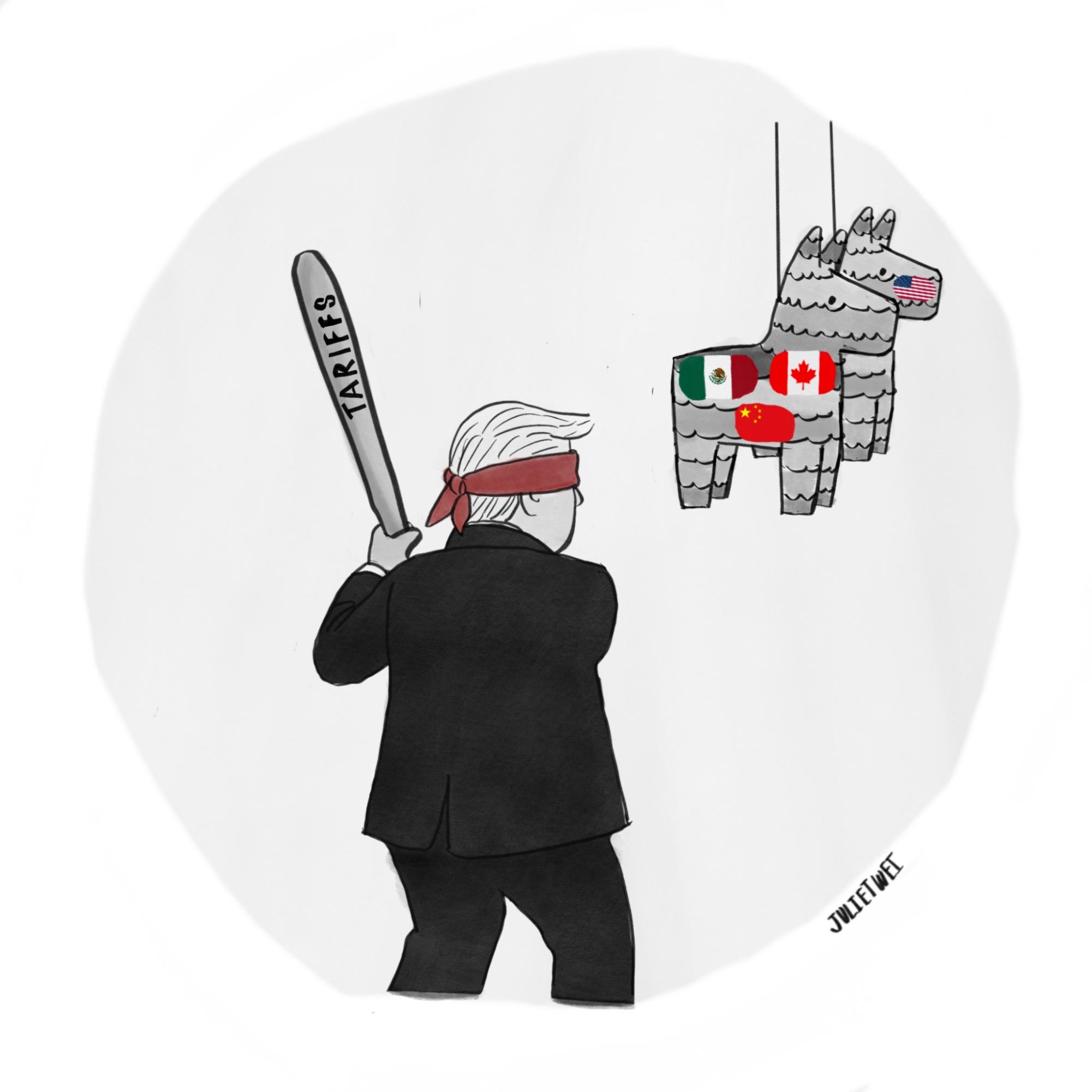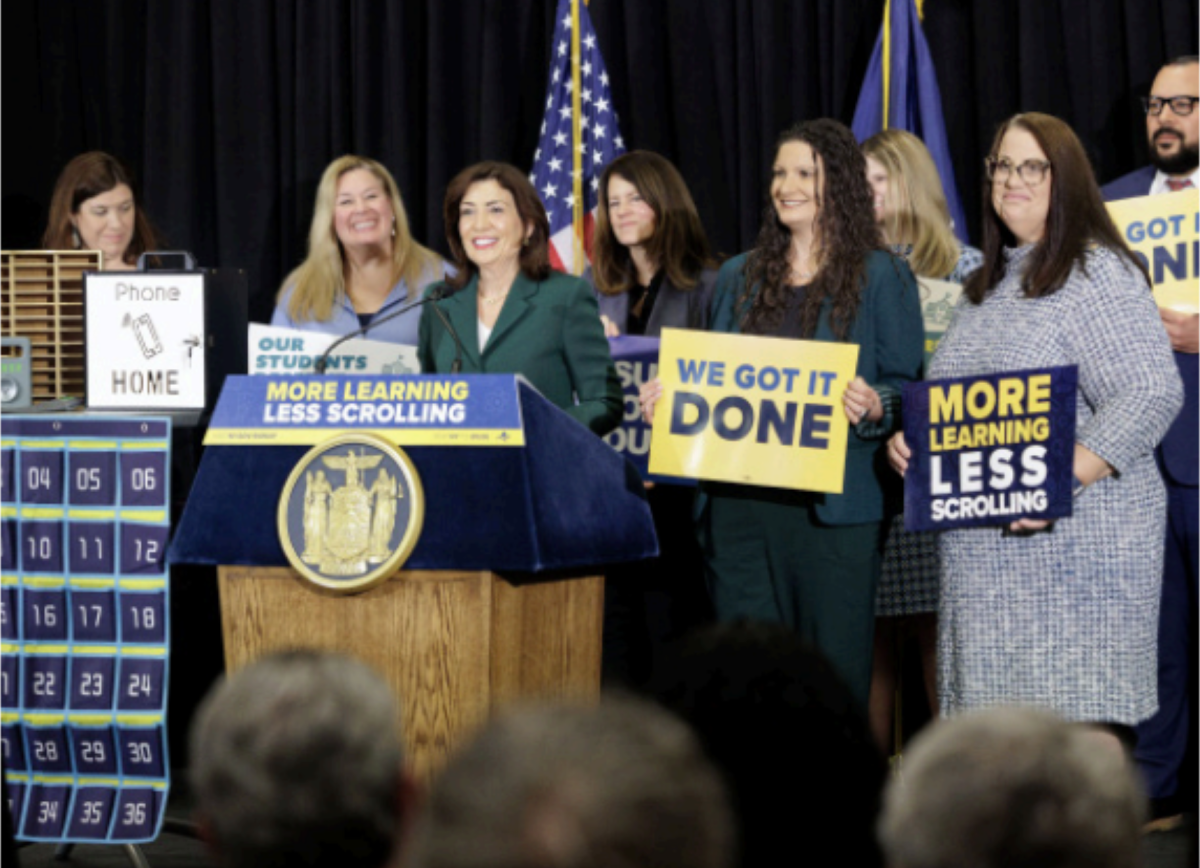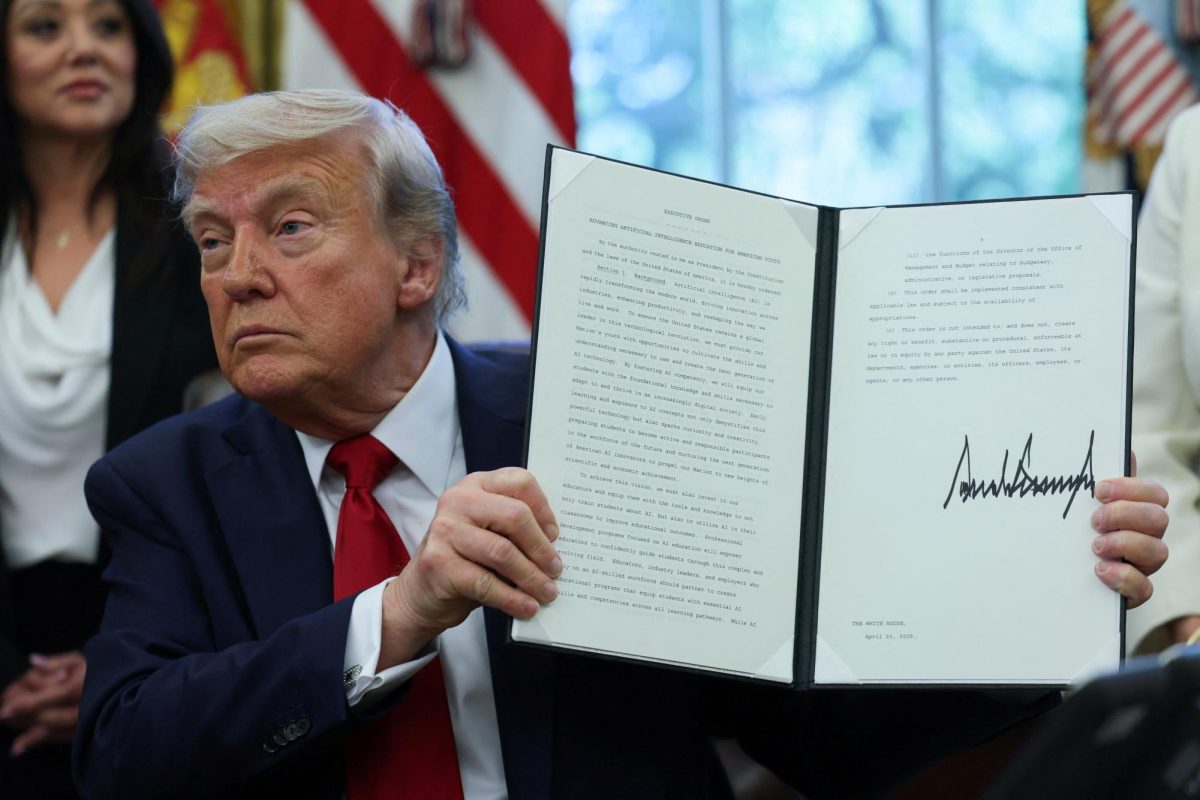If you have been following American politics and the economy, you have probably heard about the recent tariffs introduced to the American market. But what exactly are tariffs? Tariffs are taxes placed on goods imported from foreign countries, raising the price with the aim of stimulating American companies.
Since taking office earlier this year, President Donald Trump has made it a priority to enforce higher tariffs. He believes that these tariffs will prompt Americans to buy more domestically produced products and that foreign companies will be motivated to build factories in the U.S., potentially creating more jobs for American workers.
The U.S. government benefits from tariffs as it collects the additional money generated from imported products. Furthermore, Trump is using tariffs as a tool to convince countries to meet his demands. The American market has such a high value that almost all trading countries, especially developing countries, would suffer immensely without it. Losing access to the U.S. market would severely impact their economies, giving the U.S. significant leverage in trade negotiations. As a result, many countries are forced to comply with American tariffs or face serious economic consequences.
However, while tariffs may help the government in some ways, they can also damage international relationships and affect our everyday lives—especially as students and consumers. Companies such as Shein and Temu, known for affordability, are now raising prices. For many students at Mamaroneck High School and across the country, these popular brands are becoming less affordable.
Everyone loves the low prices of brands like Shein or Temu, which make it possible to order clothes and other items for significantly lower prices. But how do these companies maintain such low prices? Beyond using cheaper materials and labor, a key factor is the De Minimis Exception, which allows imported goods under $800 to enter the U.S. duty-free. Shein takes advantage of this rule by shipping individual packages directly to customers, instead of sending bulk packages that would trigger higher tariffs. This loophole has allowed them to bypass many of the costs President Trump is now trying to enforce.
In response, President Trump has signed an executive order ending De Minimis trade as of May 2, 2025. Although briefly suspended in February, the change was delayed to give delivery companies and retailers time to adjust. With De Minimis officially ended, prices from companies like Shein and Temu are expected to rise significantly.
These brands have been affordable, fashionable options for teens across the country. Now, those options may disappear. Without the cost-saving benefits of De Minimis, these companies lose a major competitive edge.
“It is very upsetting because it takes more money to pay for basic things that weren’t as expensive before” claims MHS student Jared Barrios (’27). He is among many students at the high school that agree that Trump’s tariffs are directly impacting students in a negative way.
Although opinions may vary about the tariffs, it is evident these changes are making foreign trade relations more strained and raising prices here at home. On April 2, 2025, the stock market crashed due to anger and confusion among American trading partners. Tariffs make it harder for other countries to trade with America. They send a signal that America is less open to trade and may close off various trading opportunities, seriously impacting both sides’ economies.
According to ABC News, changes are already underway as Shein and Temu have both inflated their prices by up to 377%. Shein is reportedly reconsidering its U.S. business strategy with tariffs in effect. Temu has also added import charges for customers, ranging from 130% to 150%, dramatically increasing pricing.
These brands are just the first of many to be hit hard by the tariffs. In the future, more and more brands will need to make adjustments to their business models to either work with the tariffs or deviate from American exports completely. Regardless, economies all around the world will have to deal with the changes and adapt to the new trading restrictions. The increase in prices of Shein and Temu in the United States indicate only the beginning of an inevitable change in our country.









